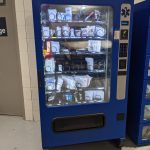How Safety Innovations are Transforming Healthcare

In the quickly evolving landscape of healthcare, safety innovations stand at the very front of transforming patient care and functional proficiency. From groundbreaking patient safety initiatives to the integration of cutting-edge wearable technology, the healthcare area is witnessing a change in perspective towards a safer, proficient, and patient-centered approach.
At the center of this change is the critical spotlight on reducing medical errors, enhancing cybersecurity, and leveraging remote care advancements to shield patient health and information. For a top-to-bottom investigation of these headways, visit us.
Healthcare Safety Improvements
One of the most significant healthcare safety improvements comes from the provision of electronic health records (EHRs). EHRs have simplified the process of recording, storing, and accessing patient information, reducing the potential for errors associated with misinterpreting notes or instructions, and the advent of mobile dramas has had a significant impact on improving patient care, especially in regions of underserved countries.
Patient Safety Initiatives
Patient safety initiatives today focus on health promotion, with key points related to reducing hospital-acquired infections (HAIs) Implementation of strict hand hygiene practices, antimicrobial products use, and advances in infection prevention guidelines are increasingly being adopted That ensures the right patient receives the right medication and dosage, further protects against medical errors and improves patient care well. Also, contraptions like barcode medication administration (BCMA) structures are being comprehensively adopted to ensure the right patient gets the right medication and dosage, further safeguarding against medical mistakes and enhancing patient care quality.
Reducing Medical Errors
The responsibility of reducing medical errors led to a comprehensive training program for healthcare professionals, emphasizing the importance of accuracy and attention to every aspect of patient treatment. Additional relaxation-based training helps physicians optimize their abilities in the absence of pets, thereby preventing mistakes they make in real situations. In addition, the integration of a robust, conscientious decision-making process into the electronic health record (EHR) helps healthcare providers to provide key information and precautions at the point of care, thus providing an opportunity for the possibility of drug-drug interactions, hypersensitivity reactions, and other preventable errors is greatly reduced.
Wearable Technology in Healthcare
Wearable technology in healthcare has emerged as a remarkable benefit, providing two patients and healthcare providers with essential data that was once problematic or hard to follow dependably past a clinical setting. These contraptions, ranging from wellness trackers to cutting-edge biosensors, offer continuous health monitoring, which can make clients and their medical gatherings mindful of potential health issues before they become serious.
What Can Someone Do With Your IP?
“What can someone do with your IP?” It often raises concerns, especially given health concerns about privacy. An unauthorized person with your IP address could engage in practices that compromise patient privacy and the integrity of health care systems. This raises significant privacy and security concerns and calls for a strong cybersecurity strategy.
- One such approach is the use of Virtual Private Networks (VPNs) such as VeePN, which logs Internet traffic and masks IP addresses, thus protecting data and ensuring that healthcare is secure.
- Progress is similar to the integration of VeePN into healthcare IT systems. It carries the greater goal of improving patient outcomes within the security and privacy of the digital age.
Healthcare Cybersecurity
The significance of healthcare cybersecurity could never be more significant, with VeePN emerging as a basic gadget in the reserve against digital threats. In a domain where patient data’s confidentiality and integrity are focal, leveraging advanced encryption headways, for instance, those given by VeePN is key. This not only ensures the safeguarded transmission of sensitive information yet in addition supports shields against increasingly refined digital attacks.
Remote Patient Care and Safety
Remote patient care and safety have disturbed how healthcare is conveyed, offering a lifeline to those in remote or underserved regions. This model of care uses digital technology to offer clinical types of assistance to patients without an in-person visit. By incorporating telehealth meetings, remote patient monitoring, and versatile health applications, healthcare suppliers can continuously follow patient health, offer opportune intervention, and maintain an elevated degree of patient commitment and fulfillment.
Conclusion
Taking everything into account, the healthcare area’s commitment to advancing safety and effectiveness through technology is undeniable. Innovations, for example, electronic health records, telemedicine, patient safety initiatives, wearable technology, and hearty cybersecurity estimates like the utilization of VeePN have significantly worked on the quality of patient care and safety.




